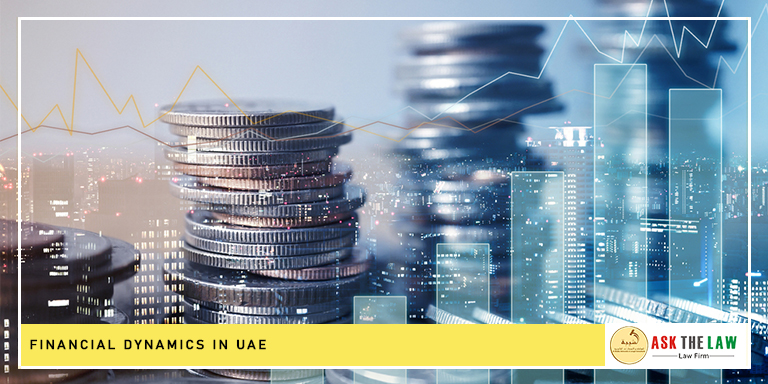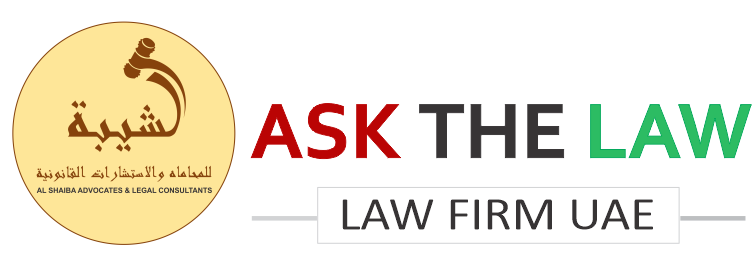
UAE: Change in Financial Dynamics
UAE has improved its financial dynamics by adding investigations from regulatory authorities in all over the country. When we say country or UAE then it means all the Emirates in UAE. The UAE’s continuously evolving and improved banking system, its regulatory authorities and it’s all the financial institutions have maintained the real time transparency. The aim is to protect the interests of investors. This way the confidence of investors is maintained, and the stake of investors is protected in country. Let’s discuss further this topic
1. Role of Central Bank
CBUAE or Central Bank of Emirate, has to monitor and regulate the entire banking system in country. It has to oversee all the banks as well as financial entities in country. The purpose is to ensure compliance rules with financial and business laws in country are and to control over the illegal and fraud activities in country. Central Bank has to make sure that all the breach and violations of financial laws, will be strictly monitored and sanctions will be put on those banks and financial institutions, violating the banking and corporate rules in UAE.
Preventive Measures Banking System
Violations of the UAE Banking Law can lead to severe penalties. For example, using an unlawful currency, can put the individual behind bars for at least two decades. It can also result in a fine of AED 100 million. For latest penalties and fines, it’s better to check with government entities. Small violations will have the penalty of paying at least AED 10,000 to AED 10 million, with a prison sentence of two years. Enforcement of penalties are quite strict with no tolerance, and it ensures that CBUAE has complied with the international banking laws.
Penalties and Enforcement Mechanisms
If a financial entity or any individual, violates the any law of UAE banking law, it will face harsh consequences, which may lead to a significant fine and imprisonment of twenty years. One of the severe crimes is using and issuing illegal money in the UAE. The minimum penalty for the smallest violation is AED 10,000, and it goes up to AED 10 million, with potential imprisonment of up to two years, depending on the severity of the violation. CBUAE enforces these penalties to demonstrate the legal standards of the financial institutions in the UAE.
Appeal to Decisions
CBUAE, also establishes the appeal process. The Committee of Grievance and Appeal only addresses the petitions against the bank’s decision within 30 days of the actual decision. The case will be followed up with testimonies and well-reviewed before the Committee decides. As the legal proceedings for the appeal are going on, the Committee can call individuals and third-party experts for testimonies.
Anti-Money Laundering (AML) Knowledge
UAE central bank is also proactive in implementing AML knowledge and laws with non-compliant banks and financial institutions. Previously, the CBUAE fined banks that did not comply with the legal standards of AML. Those banks were also penalized for non-compliance, which resulted in the revocation of their licenses. These penalties ensure transparency and accountability.
2. Securities and Commodities Authority (SCA) in the UAE
The UAE’s Securities and Commodities Authority (SCA) oversees the UAE markets in terms of securities and commodities trading in all emirates. SCA maintains high standards and safeguards consumers’ interests as defined in Federal Law No.4 of 2000.
Enforced Mechanisms and Penalties
The SCA conducts regulatory inquiries to comply with the securities laws. The SCA is authorized to suspend and impose harsh penalties if violations are found. The serious offenses include fraudulent trading and confidentiality breaches. These offenses may lead to an imprisonment of three months to three years, depending on the severity of the offense. Also, a fine of AED 1 million could be the highest offense severity. The SCA has a policy of zero tolerance for non-compliance. Investors in the UAE gain confidence.
Process for Appeal
An appeal can be made to the SCA’s Enforcement Department within 30 days of the SCA’s original decision. Accountability is to be maintained in the UAE banking sector.
Virtual Assets Regulatory Authority
The UAE is a growing financial hub that has created a standard in international financial markets. To advance the advancement of assets, virtual assets such as cryptocurrency have been made legal in Dubai. The Virtual Assets Regulatory Authority (VARA) is accountable for providing virtual assets.
VARA’s Authority in the UAE
In the UAE, VARA can fine institutions that are non-compliant with the Virtual Assets Law or any related regulations by VASPs. They can be suspended. Trade license can be annulled for six months. VARA ensures that only compliant institutions can work in the virtual assets market, and it mitigates the risk of wrong investments for investors.
VARA Employees and Authority
VARA employees are also authorized to enforce the law, keeping records and issuing violation reports. A few employees could be suitable for this responsibility. They can filter out VASPs from a pool, have access to records, and report violations. However, VARA can also get police support if needed.
Process of Appeal
VASP can challenge VARA’s decision through the VARA Grievance Committee within a month of receiving it. The Committee will take 15 working days to issue the verdict. However, the decision made after the appeal will be official and published on VARA’s website to ensure transparency in regulatory activity.
3. Dubai Financial Services Authority (DFSA)
Finances in Dubai are regulated differently. Two institutions ensure the legal standards of the finance sector in Dubai’s free zone: the Dubai International Financial Centre (DIFC) and the Dubai Financial Services Authority (DFSA). The latter is known for its strict regulatory standards, whereas DIFC tops the list for its efficiency in maintaining effective financial hubs in the UAE.
Investigation Procedures and Penalties
If there is any violation in the DIFC, the DFSA is authorized to conduct a comprehensive investigation to ensure compliance with those entities. However, investigations can be conducted in the business’s physical locations, information can be requested, and the suspects and authorities involved can be interviewed. Consequently, the penalties established by DFSA may include:
- Fines.
- Reprimanding the entity.
- Making corrective measures.
- Asking for compensation on behalf of the parties affected by those violations.
However, the DFSA can impose fines without a cap, a significant example of non-compliance with DIFC and DFSA.
Appeal Process
The appeal by entities against the DFSA’s decision can be made to the Financial Markets Tribunal (FMT), which reviews the appeal solely. When the FMT accepts the appeal, the subcommittee reviews the evidence, hears the testimonies, and decides in light of justice. Yet, the FMT can help DFSA understand where and how to start or organize the action plan. However, the court can still demand the other party foot the bill for the appeal process, depending on the circumstances under which the appeal was made. This means equal and fair cooperation for DIFC, which suggests this is a healthy model.
Requirements for Compliance in the UAE Financial Sector
Suppose a business is engaged in financial services non-compliant with UAE financial laws. In that case, it will be exposed to investigations, and the UAE’s regulatory authorities will take strict action against such violations. To make a good reputation for the business, it must comply with all UAE business laws and regulations.
Maintaining regulatory compliance in the dynamic environment of the UAE is paramount to its legal requirements. The financial entities and VASPs must proactively implement laws and stay updated on compliance laws. Any non-compliance activity can lead to harsh punishments and fines from the financial authorities within the UAE. The business license can also be revoked.
Improvising the financial market, the UAE has become a global financial hub. These multifaceted authorities in the UAE’s financial sector ensure transparency and safeguard investors’ rights. Therefore, the UAE’s financial market has to be strengthened by governing financial institutions to enforce laws effectively and investigate matters related to violating the laws. Legal consultants in the banking sector can guide you in the financial markets in the UAE.


